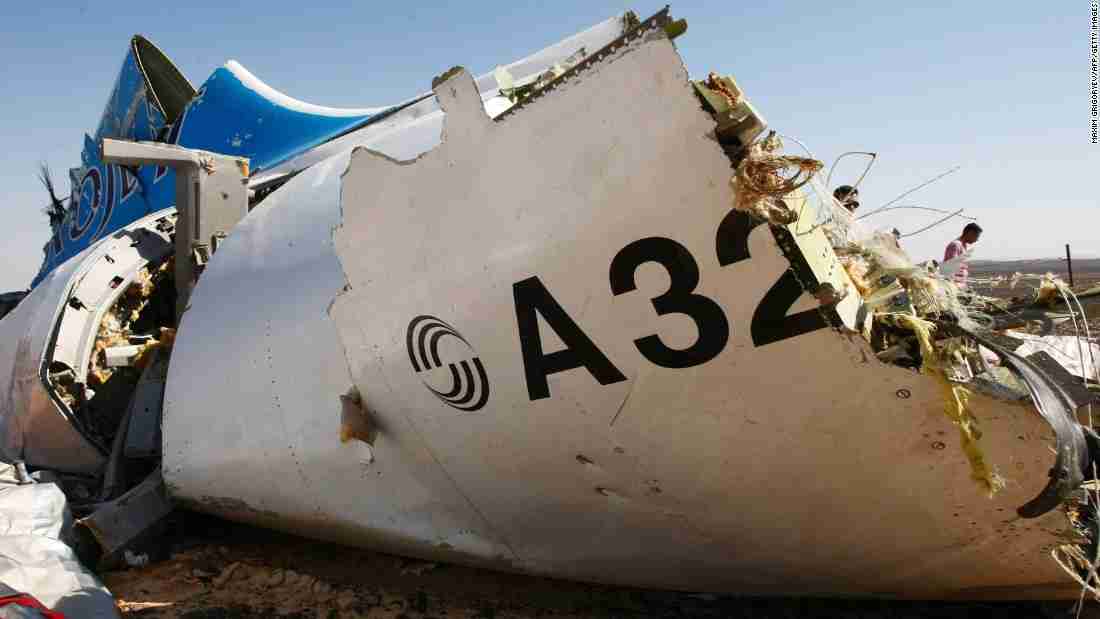Metrojet Flight 9268: Bomb Caused Oct. 31 Plane Crash That Killed 224, Russian Officials Say:
A home made explosive device brought down a Russian passenger airplane over Egypt last month, the head of Russia’s FSB security service said Tuesday, telling Russian President Vladimir Putin it is now clear the bombing that killed 224 people was a “terrorist” act.
The Islamic State in Syria and Iraq (ISIS) group has claimed responsibility for downing the Russian airplane in written statements, along with sound and video messages posted on the Internet following the crash.
“According to our specialists, a home made explosive device equal to one kilogram of TNT went off onboard, which caused the airplane to break up in the atmosphere, which describes why the fuselage was scattered over such a big territory. I can definitely say that this was a terrorist act,” FSB head Alexander Bortnikov said.
He said tests revealed the explosives were produced outside of Russia, but gave no additional details.
The Russian security service is offering a $50-million reward for info on who brought the aircraft down.
The airplane was headed to St. Petersburg, where the majority of the passengers were from.
State-owned television carried the newsbreak from Moscow, but had no official opinion either.
Egypt had resisted British and U.S. declarations that an explosive device was the likely reason for the Russian plane’s crash. Afterwards, government officials as well as the pro-government media changed their focus away from the crash’s cause to theorizing on what they called the devastating effect of the crash on the nation ‘s crucial tourism sector as well as a Western conspiracy against Egypt.
We should understand all their names,” Putin said. “We are going to try to find the everywhere wherever they’re concealing. We’ll see the in any location on Earth and penalize them.”
The Islamic State group said the attack was retaliation for other groups in Syria and Russia’s air effort against ISIS, where Moscow needs to maintain the rule of President Bashar Assad.
Putin said Tuesday that Russia’s air effort in Syria “shouldn’t only be continued but should be intensified so the offenders understand that retribution is unavoidable.”
President instructed the Defence Ministry and General Staff to present their propositions on how the operation in Syria in Russia may be changed.
Putin spokesman Dmitry Peskov said the order of the president did not mean that Russia was contemplating sending ground troops to Syria.
Putin’s meeting with other senior officials and Bortnikov was held at night, soon following the president returned from meetings with other world leaders in Turkey. The leaders from the Group of 20 rich and developing countries had vowed to work collectively to fight the Islamic State group.
“In this work, for example, investigation to discover and punish the offenders, other world leaders are relying on our buddies,” Putin said. Everybody who attempts to help the offenders should realize they will be at fault for giving them refuge.”
ISIS has warned Putin that it’d likewise target him “at home,” but didn’t offer any details to back its claim. While releasing details would add credibility, the group could be withholding because doing so would sabotage strategies for similar strikes later on because its claim is not true, or as its mystique might deepen among diehard followers.
IS wounded 350 others and has also claimed responsibility for Friday strikes in Paris.





